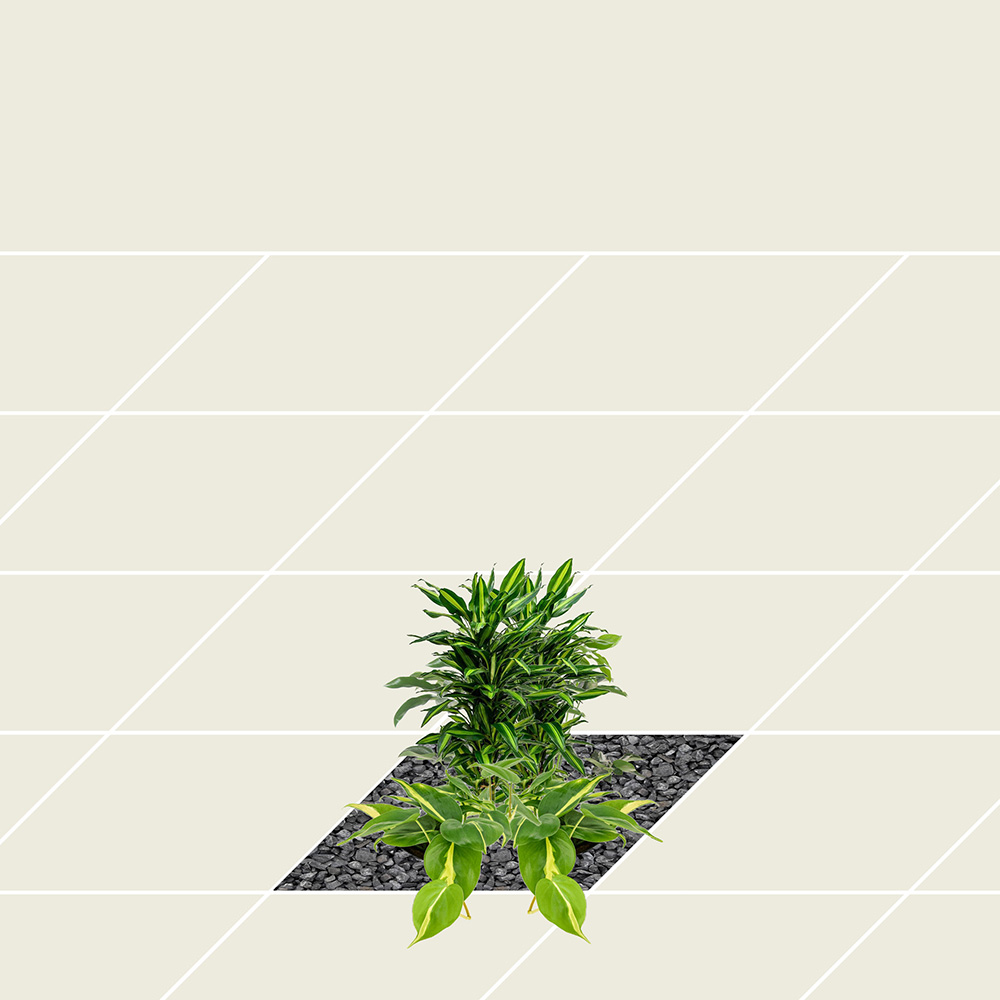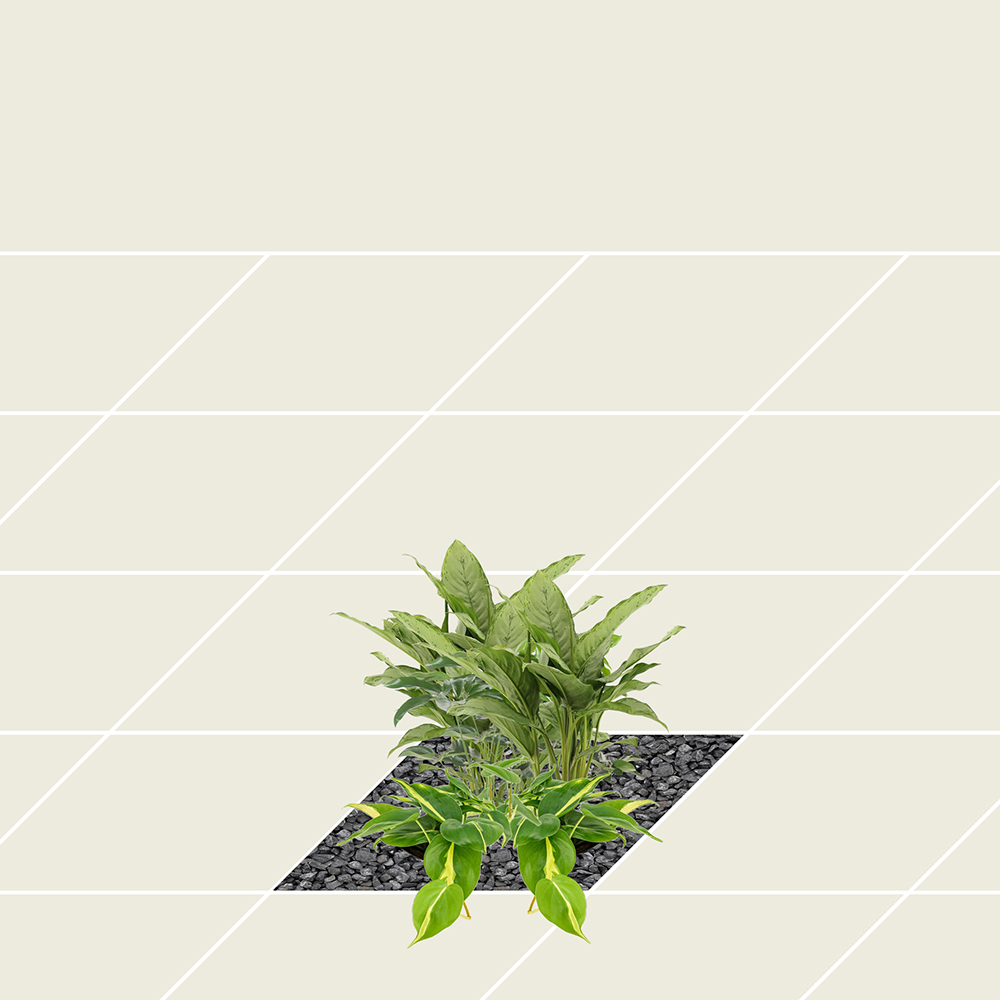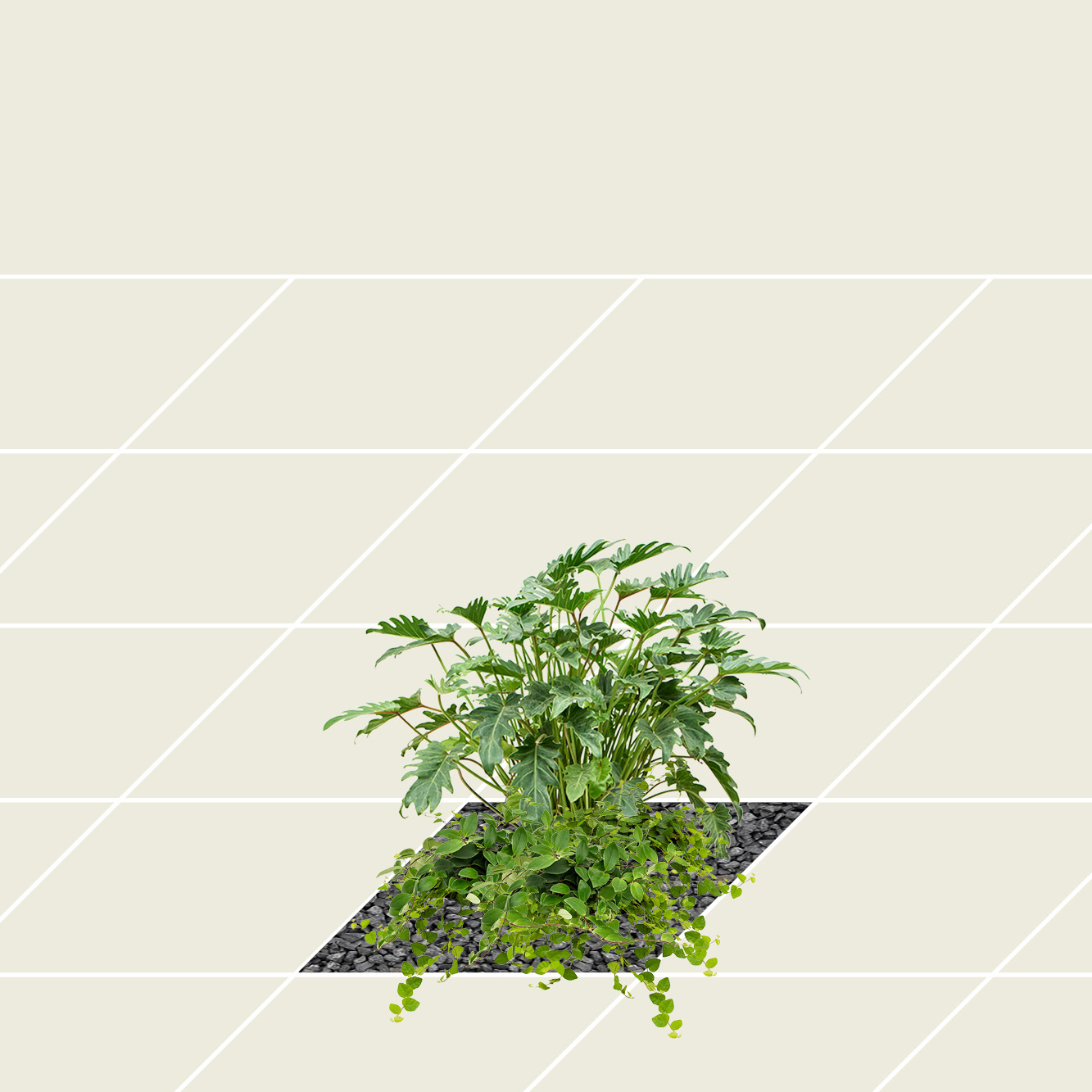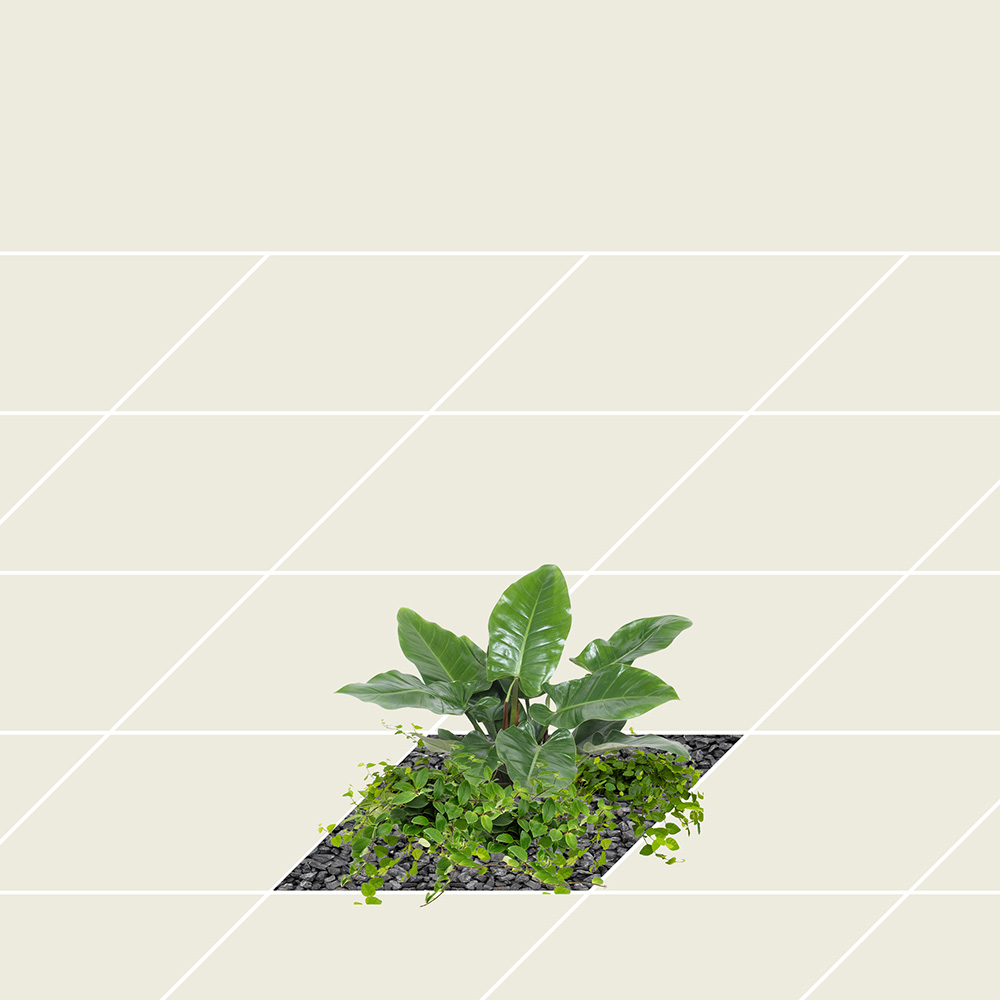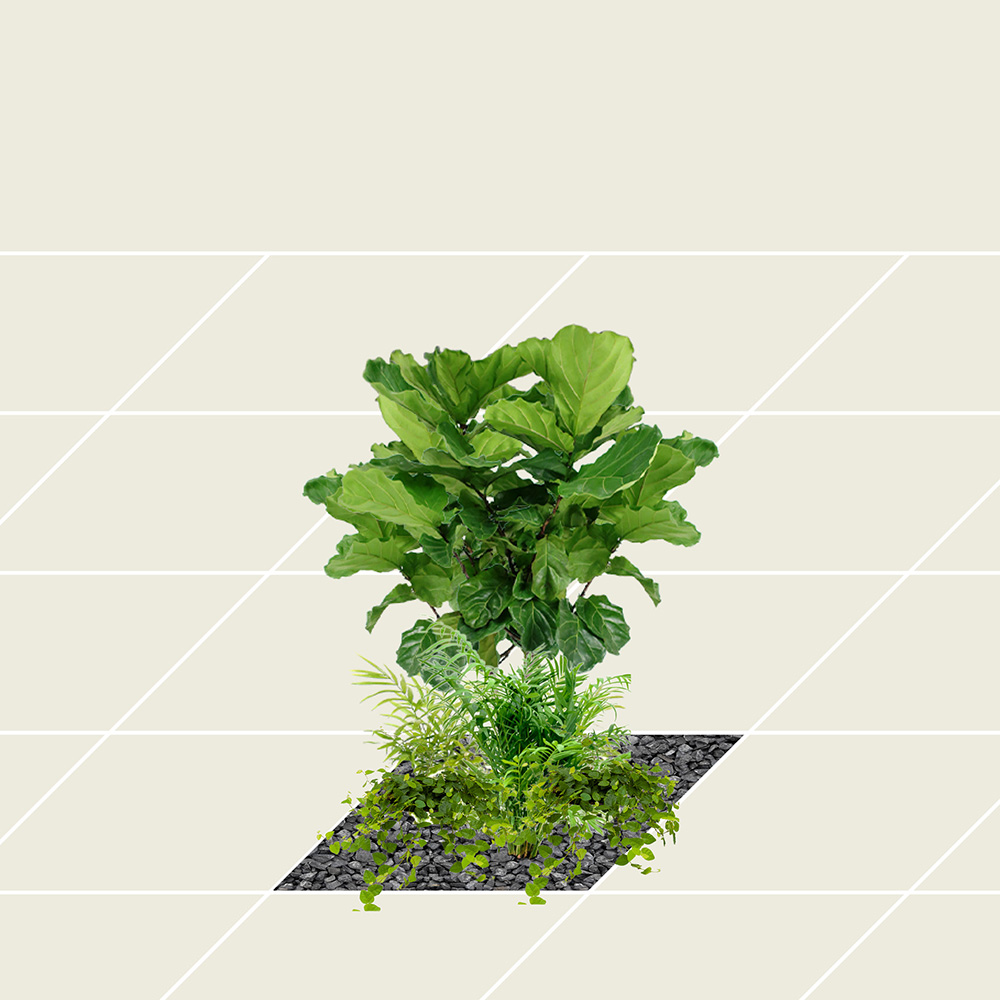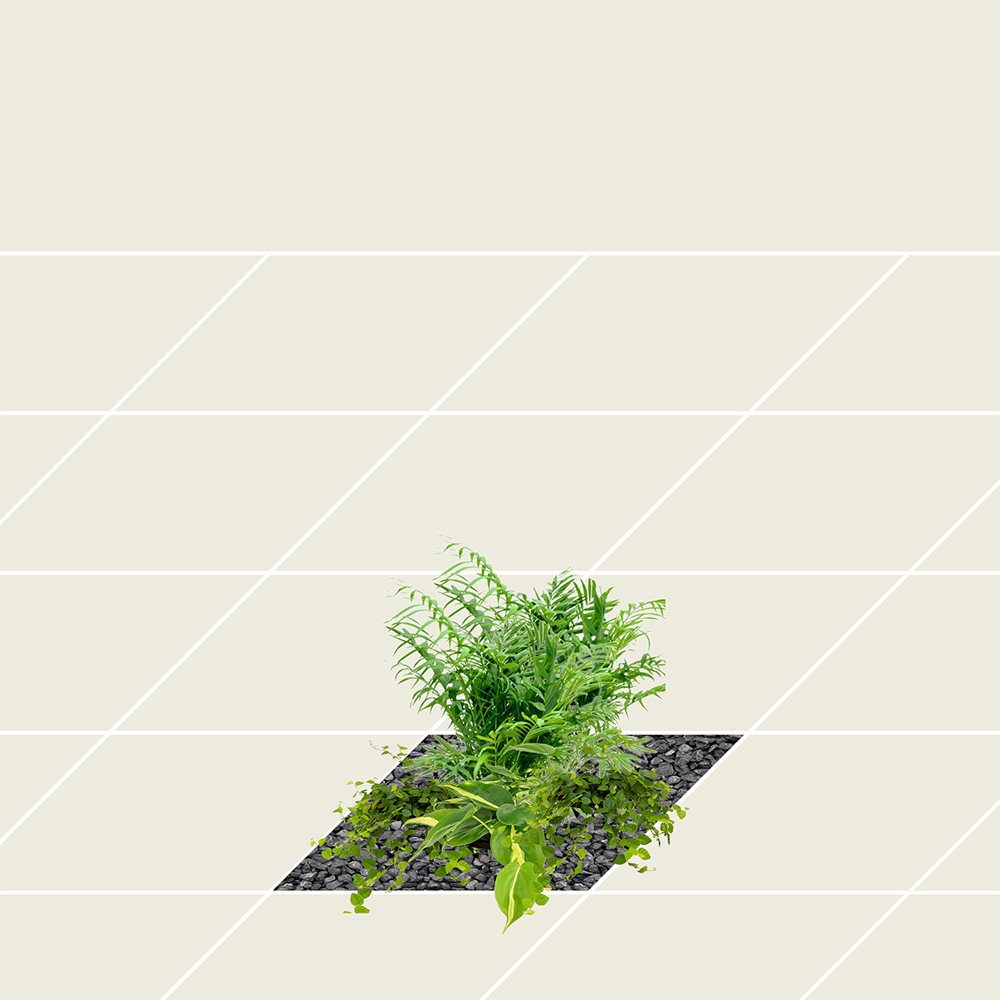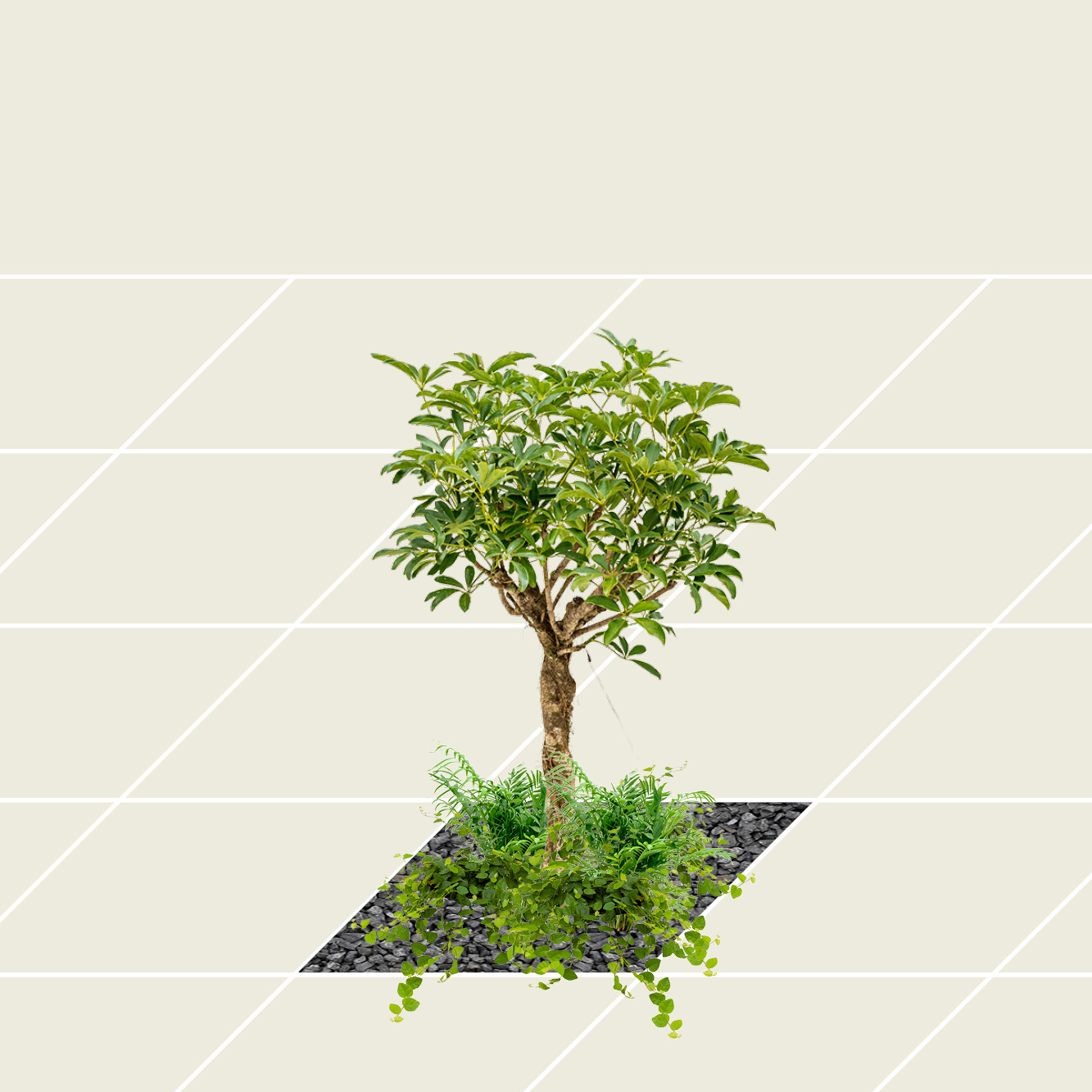floora
A bit of healthy greenery in the workplace
The impact of plants on people’s well-being has been studied many times, and all the research has led to the same conclusion: plants make us happier, more relaxed and healthier.
It is our evolutionary path that has forged this deep-rooted link in the psyche, which affects the way we process visual, auditory, olfactory or tactile stimuli. All these sensory perceptions are strongly linked to our wellbeing and even today, on an unconscious level, we associate vegetation with positive aspects.
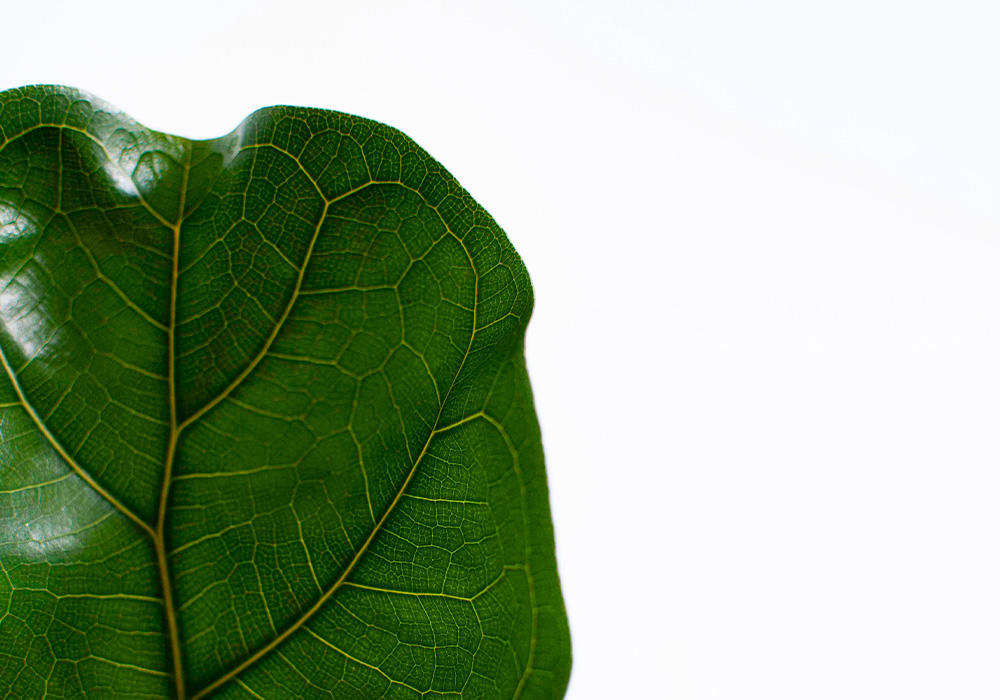
We have greenery in our DNA
Humans have lived on the earth for ten thousand years, and most of this time has been spent in the outdoors. In this lifestyle, plants played an essential role: they indicated water sources, provided food and care, but also clothing and building material.
The connection that unites us to plants is therefore something intrinsic that has always accompanied us, an indelible imprint in our perception.
Precisely due to this connection, today the presence of plants in the office has a positive effect on our psychophysical balance, generating an immediate feeling of well-being.
– stress + productivity
Simply seeing plants makes us feel good.
Many studies have shown that observing plants or other natural elements helps to lower stress and related negative feelings such as anxiety, anger or sadness, while at the same time increasing positive feelings. At work, this translates into a greater capacity for regeneration and concentration.
Green brings ‘life’ to the working environment, making it more pleasant, less monotonous and boring. The results are extraordinary: plants and flowers in the office make employees happier than their colleagues who work in a bare, green environment, and significantly increase creativity and productivity.

A breath of fresh air
We spend 90% of our time indoors, about 22 hours a day, which is why we are the “Indoor Generation”. Home, school, office, gym, all closed environments, often poorly lit and poorly ventilated, where the air inside can reach 5 times more pollution than outside.
Air quality is fundamental for our health and the inclusion of green areas could represent a valid solution:
• plants absorb CO2 during photosynthesis, reducing the concentration of carbon dioxide.
• plants produce steam and regulate humidity, but they also absorb heat and noise, and filter the air by neutralising harmful substances.
• plants reduce the amount of dust in indoor environments by 20%.
• plants are able to break down many harmful particles, in particularly the volatile organic ones, cause of headaches and tiredness, eye and respiratory tract irritations.
